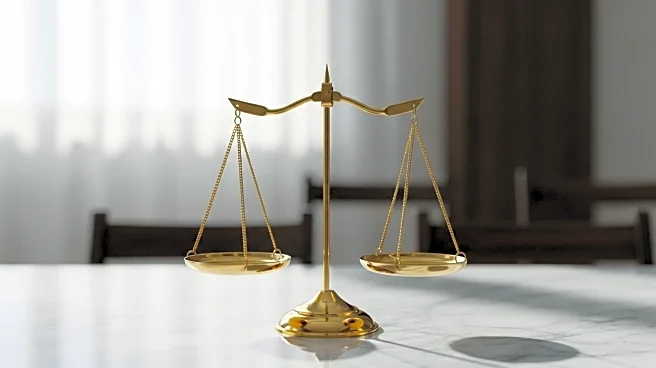What is the story about?
What's Happening?
A federal judge in New York has dismissed Drake's defamation lawsuit against Universal Music Group (UMG). The lawsuit was filed by Drake following the release of Kendrick Lamar's diss track 'Not Like Us,' which contained allegations against Drake. Judge Jeannette Vargas ruled that the statements in the song were nonactionable opinions rather than factual claims. The case was part of a rap battle between Drake and Kendrick Lamar, which involved multiple diss tracks with heated rhetoric and accusations. UMG expressed satisfaction with the court's decision, emphasizing the importance of creative expression in the music industry.
Why It's Important?
The dismissal of Drake's lawsuit underscores the legal protections for artistic expression, particularly in the music industry. This ruling may set a precedent for how courts handle defamation claims related to artistic works, especially in genres like rap where hyperbolic language is common. The decision is significant for record labels and artists, as it reinforces the notion that creative works are often viewed as opinion rather than fact. This could impact how artists approach diss tracks and other forms of musical expression, knowing that courts may favor artistic freedom over claims of defamation.
What's Next?
With the lawsuit dismissed, Universal Music Group can continue promoting Drake's music without the legal cloud of defamation claims. Artists and record labels may take this ruling into account when producing and releasing music that involves controversial or provocative content. The music industry might see increased confidence in releasing diss tracks and similar works, knowing that courts may protect such expressions under the umbrella of opinion. Drake and Kendrick Lamar may continue their artistic rivalry, potentially leading to more music releases that push creative boundaries.
Beyond the Headlines
The case highlights the tension between artistic freedom and personal reputation in the music industry. It raises questions about the ethical responsibilities of artists and record labels when releasing content that could harm an individual's reputation. The ruling may encourage discussions on the balance between free expression and defamation, particularly in genres known for their confrontational style. Long-term, this could influence how artists and labels navigate the legal landscape of music production, potentially leading to more defined guidelines on what constitutes defamation in artistic works.
















